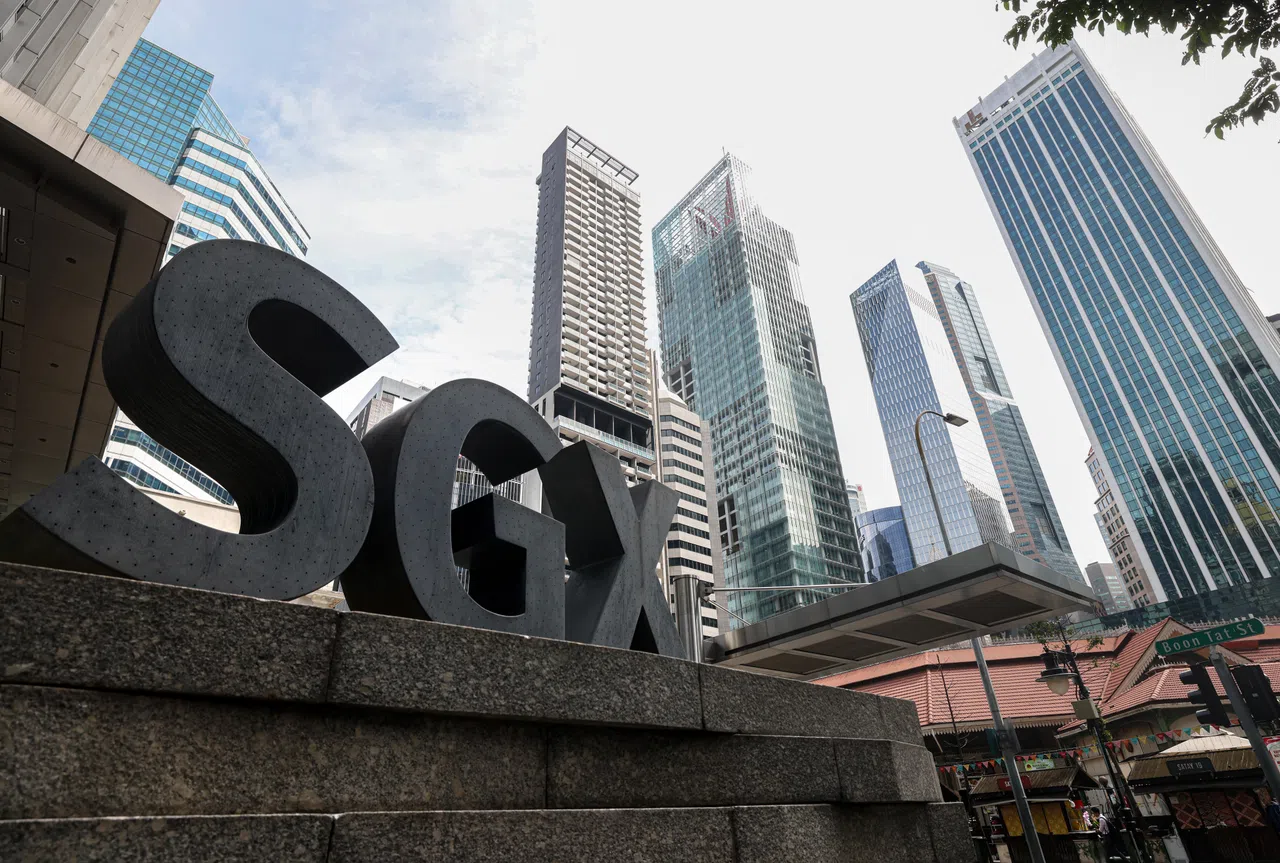MILESTONES are not simply markers of time. They are moments that invite reflection, to pause and acknowledge achievements with gratitude, and to look ahead with renewed perspective and determination.
This year, Singapore celebrates its 60th anniversary, a remarkable testament to six decades of resilience, unity and transformation. The Singapore Corporate Awards (SCA) marks its 20th anniversary, cementing its place as the stage on which excellence in corporate governance and reporting is recognised. Coincidentally, my own home institution, the NUS Business School, turns 60 this year as well.
For those of us reflecting on the evolution of business and governance in Singapore, 2025 is nothing short of a milestone year.
Since its inception, the SCA, organised by the Institute of Singapore Chartered Accountants (Isca), the Singapore Institute of Directors (SID) and The Business Times, has been synonymous with raising standards of corporate governance practices in Singapore.
Within this constellation of awards, the Best Annual Report Award (ARA) has stood as a beacon of exemplary corporate reporting. At this juncture, as the SCA turns 20, it feels fitting to reflect on how far annual reporting has come, and how the ARA has evolved over the years.
Two decades ago, annual reports were quite different creatures. The emphasis was mostly on ensuring compliance with statutory requirements.
The ARA rewarded companies that produced complete, high-quality and well-presented financial disclosures. Sustainability elements were minimal, and often relegated to side notes. Annual reports were largely static documents, designed to meet the letter of the rules rather than to tell the fuller story of the company.
Over time, the focus of annual reporting shifted profoundly as expectations of investors and stakeholders began to change.
Annual reports became a window into the company: its mission, strategies, risks and, increasingly, its impact on society and the environment. Compliance gradually gave way to communication.
Strategic storytelling
The best annual reports today are strategic storytelling tools that weave together a company’s purpose, performance and prospects into a coherent whole. Sustainability reporting moved from the margins to the mainstream, and ESG disclosures are no longer optional extras, but core measures of corporate responsibility and long-term value creation.
The ARA has been a mirror to this transformation. From recognising those who excelled at clear financial disclosures, it now rewards those who tell a compelling, integrated story. Impact and accountability have become the heart of great reporting.
The winners of the 2025 ARA embody this shift, and exemplify the very best of what corporate reporting can achieve.
In the big-cap category (market capitalisation of S$1 billion and above), DBS Group Holdings clinched the Gold, with Singapore Telecommunications (Singtel) and Oversea-Chinese Banking Corporation (OCBC) claiming the Silver and Bronze. The winners are distinguished by their integration of corporate mission, risk assessment, financial performance and ESG strategy into a seamless narrative that not only informed, but also inspired in equal measure.
In the mid-cap category (market capitalisation of $300 million to $1 billion), SBS Transit drove home the point that operational detail and forward-looking insight can ride comfortably side by side. Its gold-winning report was clear, structured and highly readable. Far East Orchard (Silver award) and Hong Leong Asia (Bronze Award) followed with commendable efforts that kept pace with rising expectations.
In the small-cap category (market capitalisation of under $300 million), Qian Hu shone with its informative and clear report. Close behind is Banyan Tree Holdings and Hotel Royal, the latter making its debut appearance with an innovative, comprehensive effort that earned it a place on the podium.
Among Reits and Business Trusts, CapitaLand Integrated Commercial Trust stood alone as the Gold winner, praised for its clear articulation of portfolio performance and substantive disclosures.
While larger companies often have greater resources to produce more sophisticated reports, this year’s results show that excellence is not a matter of size. Mid- and smaller-cap winners demonstrated that clarity of thought, relevance of disclosures to stakeholders and innovative presentations can be just as impactful.
Beyond financial figures
To lead the pack today, it is no longer enough to simply disclose more; rather, the disclosures must be meaningful, coherent and relevant. That includes minimising boilerplate language, using visuals to clarify rather than to decorate, and maintaining a consistent voice that reflects the company’s character and strategy.
The common thread observed by the ARA judging panel among all the winners was their ability to provide information that investors find useful.
Today, investors and stakeholders look well beyond the financial numbers. They seek context, perspective and insight into what drives performance. They want clarity on the market environment, the risks a company faces and the strategies it employs to navigate them effectively and responsibly.
Forward-looking perspectives are valued as much as historical performance, and transparency is expected, not only in celebrating successes but also in acknowledging setbacks and challenges. For companies, meeting these expectations brings tangible benefits, from strengthening investor confidence to deepening stakeholder trust.
But milestones are not only about looking back, they are also about charting the way forward.
In his recent SG60 National Day message, Prime Minister Lawrence Wong reminded us that progress depends on drawing strength from the past while pressing forward with confidence.
At these crossroads, the question naturally arises: where is annual reporting heading? Yet, perhaps the more critical question is not merely one of direction, but of aspiration. What should we, as a business community, envision annual reporting becoming?
The answer is already beginning to take shape.
ESG will and should remain at the forefront. The focus, however, is shifting from broad intentions to measurable impact.
Investors and stakeholders increasingly expect quantified results tied directly to corporate strategy and financial performance. Global standards set by, for example, the International Sustainability Standards Board (ISSB) will help ensure comparability, while external assurance on sustainability data will likely become the norm rather than the exception, cementing credibility.
Sustainability should not appear as a detached insert; it should be woven seamlessly into the fabric of the company’s story, so that readers are not left burdened with piecing together two separate reports.
Static, text-heavy PDF reports will increasingly give way to digital-first formats that are more interactive, visual and engaging. Reports of the future will be living documents, rich with user-friendly visualisation and dashboards that enable stakeholders to explore trends and performance with greater ease and depth.
The most compelling reports will be those that connect strategy, risk, financials and ESG into one coherent story that informs decisions.
On to the next milestones
Looking ahead, artificial intelligence (AI) will almost certainly reshape how annual reports are created and consumed. As AI capabilities expand, so too will the demand for real-time reporting.
For companies, AI tools can streamline production, detect inconsistencies, enhance data visualisation and generate timely updates. For readers, AI offers more dynamic and personalised experiences, so users can query the information in real time and receive tailored, evidence-based responses specific to their needs.
These possibilities are exciting and will open new avenues of engagement, but they will also bring new responsibilities. Ensuring that AI-generated content remains accurate, authentic, and aligned with reporting standards will be critical.
As Nelson Mandela once said: “Remember to celebrate milestones as you prepare for the road ahead.”
Singapore’s 60 years of dynamic nation-building, the SCA’s 20 years of recognising excellence, and the ARA’s journey from past to present all remind us that progress is built on the foundations of yesterday, but sustained by the choices we make today for tomorrow. The challenge now is to keep evolving.
Annual reports must continue to innovate, embrace technology with responsibility, and integrate financial and non-financial performance into a single compelling narrative. Above all, they must remain grounded in transparency, because trust is the currency on which long-term value is built.
Milestones are not end points, but markers along the road. As we celebrate the ARA winners of 2025, we do so with the knowledge that the next chapter will demand even more.
The future of annual reporting will belong to those who can combine the rigour of transparency and accuracy with the art of storytelling, who can harness technology while preserving the irreplaceable human touch, and who understand that excellence is not a destination, but a continuous journey.
The writer is the academic director of the MSc Accounting Programme and senior lecturer at the Department of Accounting at NUS Business School






